
The Great Yokai War
4 oamenii au considerat această recenzie utilă
Această recenzie poate conține spoilere
My first thought when watching The Great Yokai War was that it was a Miyazaki Hayao animated film come to life. The film was filled with strange spirits call yokai who were being turned into steam punk monsters to aid the demon lord Kato in covering the world in darkness. When the fate of humanity is at stake, who can you rely on? Only a grade school boy with a fancy sword and a handful of colorful characters.Tadashi’s parents have divorced and he is living with his mother and grandfather in a rural area while his sister lives with the father in Tokyo. The other boys pick on Tadashi even after he is chosen as the Kirin Rider, the boy who will preserve world peace. What Tadashi doesn’t know is that the demon Kato and his dominatrix henchwoman Agi are rounding up yokai and turning them into destructive metallic monsters. Tadashi rescues a furry yokai and carries him everywhere as no one else can see it. The Goblin Mountain calls to him and he is tested by the yokai living there and deemed worthy. The Goblin gives him the sword of destiny before Agi and her metal minions carry the giant goblin way. Kato has created a giant frog airship to take to Tokyo. Some bystanders think Gamera has returned. Gamera was a turtle people, come on! Tadashi meets with other yokai and upon discovering Kato’s nefarious plan they travel to Tokyo to try and stop the handsome demon. A bean washing yokai joins them and is heavily foreshadowed as being key to thwarting Kato’s evil goal.
The film was extraordinarily creative. There were not just a dozen different yokai, but around 100 had some form of screen time. Tadashi’s team had a red spirit whose hair warned of danger, a turtle, and a water princess. They met a walking talking umbrella, a walking talking wall, a long-necked woman, and strange animal yokai to name a few. The Transformer elements were inventive if not unique, sadly the CGI was lacking.
The acting was about what you’d expect from this kind of movie. Some of it was quite over the top. Toyokawa Etshushi as Kato grounded the film and avoided chewing the scenery. A good thing as the yokai actors and the human artist didn’t leave much after they were done with it. The child actor did the best he could but his performance wasn’t compelling, one of the problems with putting the weight of the world on a pre-pubescent boy. Kamiki Ryunosuke has gone on to do numerous dramas and films. The music wasn’t memorable for the most part. The only funny element to me was the azuki bean song at a key moment. It was hilarious.
Kato’s revenge was based on humans ridding themselves of things that no longer serve them. Maybe it was a translation problem, but I found it confusing. “He is the resentment humanity has earned from those things you use no more and throw away.” With the example Tadashi was given about throwing away worn out shoes being bad, I wasn’t sure if Kato wanted people to be hoarders or run around naked. The yokai had good advice, especially from a country that has experienced many wars. “Those who discard their past have no future.” “Wars must not happen, they only make you hungry.”
If you want to show this film to younger children, it might be good to know that Agi and the Water Princess were sexualized. There were also dismemberments, blood, and what could be seen as scary monsters for young ones.
Director Miike went overboard to make an artistic fantasy world awaken. The biggest drawback for me was that the film took a long time to set up the story, too long. Forty-minutes passed by before the adventure began. Despite his innovate spirits, the theme was a familiar one. For once again, the only force in the universe that could protect humankind was a small boy. This time aided by a sword and a little red bean.
10/5/23
Considerați utilă această recenzie?

Această recenzie poate conține spoilere
"As if the Earth has been turned upside down"
In Shindo Kaneto's Onibaba, the viewer is left wondering who is the demon? In a time of war between two emperors, the poorly armed peasants pressed into military service suffered as well as the women, children, and elderly left to face violence and starvation at home. During this time a mother-in-law and daughter-in-law took drastic measures in order to survive.As the women were not given names, I'll address them as MIL and DIL. Isolated near a swampy pond surrounded by tall grasses the women have made the terrible decision to murder lost or injured samurai and sell their armor and weaponry for food. They dump the bodies in a deep dry well within the sea of grass. One evening a neighbor returns after deserting the second army he was forced into. He claims that he escaped when farmers killed MIL's son. He was given a name, Hachi, but since the women have no names I'll identify him by HD (Horny Dude). HD has fallen as badly as the women for he showed up in the clothes he'd killed a priest for. HD desires DIL and slowly she gives into her sexual appetite and begins meeting him at night after MIL falls asleep. MIL tells him to stay away from DIL until they are able to harvest a crop. She can't murder samurai by herself and without DIL, she'll starve. HD tell her that he will just stay "friends" with DIL until then. When DIL is at HD's hut having a friendly mingling, a lost samurai general appears at the women's hut and orders MIL to guide him out of the grasses. He wears a demonic mask which he says is to protect his handsome face from being marred in battle. MIL tricks him into falling into the death hole and then climbs down to retrieve his gear and the mask. The mask, however, is adhered to his face and when she finally pries it off, she sees his grossly disfigured countenance. MIL tells DIL stories at night about hell and demons and the punishment for unmarried people who give into their lust. Wearing the mask, she terrifies DIL in the tall grass as the young woman is sneaking to HD's hut at night. After wearing the mask during a rain storm MIL discovers the gruesome curse for herself.
Onibaba wasn't a horror movie in the classic sense. It felt more like an episode of the Twilight Zone where karma played a trick on someone daring to taunt forces beyond their control. The tall grass acted as a fourth main character, waving and creaking haunting howls in the wind. Like predators slinking through them, the women pounced on the unaware unseen. HD and DIL has sexual trysts hiding in the reedy arms as well. Fair warning there was nudity in numerous scenes.
Onibaba explored how society and morality breakdown in the face of starvation and death. Murder and stealing no longer seemed wrong. Hunger for food and sex became overriding desires. While MIL had almost masklike features of exaggerated eyebrows, extreme makeup and Bride of Frankenstein hair coloring all before wearing the mask, the other characters behaved as immorally. Lust was the least of their sins. Ironically, the women never seemed to grasp that the man they had hoped to come home had fallen prey to civilians just like themselves trying to survive. Prolonged war leaves a society and its rules in tatters, making demons of many without the need to physically transform. But weren't the greater demons the ones who started the wars in their insatiable need for more power and voracious greed for more wealth?
10/2/23
Considerați utilă această recenzie?
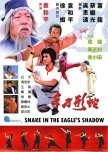
Snake in the Eagle's Shadow
4 oamenii au considerat această recenzie utilă
Această recenzie poate conține spoilere
A menagerie of kung fu styles!
Snake in the Eagle's Shadow was Jackie Chan's first hit and first hint at the comedic kung fu movie style he would go on to perfect. A 65-year-old Simon Yuen meshed perfectly with Chan and the old kung fu artist showed he was still spritely for a man his age.Chien Fu is an orphan who works as a janitor and tackling dummy for a martial arts school. When he "saves" a beggar from being abused by another school he inadvertently meets his new kung fu teacher. Pai Chang Tien is a Snake Fist master in disguise and on the run from the Eagle Claw clan who are seeking to eliminate all those who practice the reptilian style. After an arduous training montage, Chien Fu learns the Snake style just in time to face the Big Bad. But in order to defeat him he will have to add another style to succeed in the life or death battle.
Simon Yuen was a delight as the crafty old master who could defeat opponents with chopsticks and a rice bowl. He may have had stuntman help but there were many scenes where he was still showing he had the moves that had kept him employed for thirty years at the time. His son, Yuen Woo Ping, alongside Hsu Hsia created the entertaining fights. While acrobatic and comic, the fights could be slow as Jackie Chan went through his elaborate moves. The movie did show why there need to be animal rights activists when Chien Fu learned Cat's Claw technique from watching a house cat fight a cobra. PETA line 1! Tino Wong made an appearance as an offended fighter who roughed up some of the school's fighters and in the end had to be taught a lesson by Chien Fu. In the final fight with Hwang Jang Lee, aka Thunderleg, the legendary kicker accidentally knocked out one of Jackie's teeth which was quite apparent. The screeching cat sounds were hilarious when Chien Fu used the Cat's Claw technique.
Snake in the Eagle's Shadow started out slow, but once Simon brought Jackie up to speed on his fighting skill, the movie also picked up speed. Aside from the initial slapstick scenes, the comedy also became better integrated into the story as it went on and wasn't so over the top. This was a fun kung fu flick that showed off a variety of styles which I always find interesting. The chemistry between Chan and Yuen made up for story plot holes and lapses. For fans of Jackie Chan, it's one to check out to see where his comedic style really began to take root.
9/28/23
Considerați utilă această recenzie?

The Flowers of War
4 oamenii au considerat această recenzie utilă
Această recenzie poate conține spoilere
"So many people have died, even hell is packed."
The Flowers of War was released shortly after the 74th anniversary of the Nanking Massacre. A drunk Westerner with no political alliance, a dozen church school girls, and a dozen prostitutes take refuge in a cathedral compound as the rest of the city lies in ruins. Surrounded by Japanese soldiers, the unlikely group of people will have to work hard to find a way to survive.This film is not for the faint of heart. Dead bodies line the streets and civilians are shot whenever found. Children are raped and adult women are gang raped, tortured, and murdered. Where this film did not work for me, and I say this as an ardent Zhang Yi Mou fan, there was too much sexual flirting and beautiful images in such a stark and unsavory story. The film was based on a novella inspired by an American missionary's diary. The missionary, Minnie Vautrin, fought to protect students and refugees at Ginling College where she was president. Instead of someone like Minnie, we were given John Miller, a drunken reprobate. He transformed into a heroic knight willing to do whatever was necessary to save the girls overnight. His character growth was shockingly unbelievable. The prostitutes had the same saintly transformations just as quickly. We never learned the names of most of the school girls or prostitutes. It ended up being simple. Virgins must be saved. Prostitutes are expendable. I thought John's makeover time came across too lighthearted when the mortician was basically working his magic on women who were going to a terrible death. The Japanese were almost uniformly categorized as evil. It's not surprising. With a national trauma of 200,000-300,000 killed and countless women raped, that's a wound that does not heal easily.
Christian Bale was serviceable as John. Though a big name, his acting style doesn't appeal to me. John wasn't a very sympathetic set of western eyes to view the atrocities through. Ni Ni in her first role showed she had acting chops, even more impressive in a role that called for her to speak English much of the time. Her Yu Mo was seductive, strong, and sorrowful. I hated that they had Yu Mo fall for the uncouth John, it was more relatable when she used him for his western face to help save her and her friends. Huang Tian Yuan as sweet George made the most of his pivotal and heroic role.
Every action in this film was designed to elicit an emotional reaction and get the viewer's tear ducts flowing. It felt too contrived most of the time. It was hard to emotionally bond with female characters, both young and older, who had no names. The time was catastrophically devastating and those who survived the murderous onslaught faced horror after horror, there's no easy way to put that on film. Had there been more believable character growth and fewer flirty moments, I could have gotten on board with this film better.
9/27/28
Considerați utilă această recenzie?
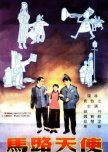
Această recenzie poate conține spoilere
"Who doesn't treasure life?"
Street Angel followed a group of low-income workers who forged bonds of love and friendship as they dealt with the hardships thrust upon them in an uncaring city of have and have-nots. Music, magic tricks, humor, and true love lightened the mood of a melodramatic story.Xiao Hong and her sister Xiao Yun fled the Japanese and ended up in Shanghai working in a tea house. Xiao Hong sings for the customers while the owner put her older sister to work as a prostitute. Hong flirts with the trumpet player, Xiao Chen, who lives across the street with his friends. Their flirtation turns to love and all seems well until Hong discovers her new guardians intend to sell her to a wealthy street gangster. Chen and his friend Wang, visit a lawyer with an office high in a skyscraper only to discover that justice is out reach for the poor. C buddies The buddies spirit Hong away and the two lovers marry. Yun finds her sister and for a time it looks like the sisters may have a happy life. Sadly, the melodramatic aspect of this film could not be outrun as the economy worsens and rent prices increase, even worse, the tea house owner and the gangster are hot on their trail.
Music dominated much of the film. Zhou Xuan sang several lovely songs and enthusiastic trumpet music also livened the story's setting. Chen entertained Hong and his friends with numerous magic tricks to keep everyone's spirits up when money was tight. Zhou Xuan and Zhao Dan played their roles exuberantly and earnestly as the lovers went from frolicking to despair.
The quality of the filming was difficult to tell as the film I watched in the public domain had not been restored and could be quite blurry at times. Even at that, I could tell it was well framed and shot. This was one of the earliest Chinese films to use sound and they made the most of it with the background music and musical numbers.
Street Angel worked in humor that bordered on slapstick without going overboard. The love story felt authentic, even the second love story felt earned. The bright loving, parade-like atmosphere crashed into reality by the end of the film when the characters faced the harsh truth of their lives and limits of their power. Those who lived high above them had access to justice and medical care while they struggled to keep a roof over their heads and a smile on their faces. "Who doesn't treasure life?" Treasure life they might, but the poor toiled in a system that would swallow them whole if they weren't lucky. This plucky group of friends were a delight to watch as they held each other up and held on tight, even when it seemed their luck had ran out.
8/29/23
Considerați utilă această recenzie?
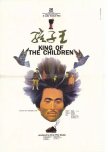
King of the Children
4 oamenii au considerat această recenzie utilă
Această recenzie poate conține spoilere
"Without a dictionary, how will you be the king of children?'
King of the Children was a heartwarming slice of life film set in rural China during the Cultural Revolution. The story rolled along languidly with gentle humor as Lao Gan learned he had been assigned to be a teacher to a small poverty-stricken middle school. Without preaching, the film addressed some of the problems the school and children faced during the chaotic political time.Lao Gan who had not trained to be a teacher found out one day that he would take over a middle school class in a rural district. The children's poverty largely reflected his own. He was flummoxed that he had the only government approved manual and the children had no books. The principal had stacks of old teaching material in his building saying they were best used as toilet paper at the present time. The students had learned in the past by the teacher writing from the manual on the roughly hewn board in chalk. Poor Lao Gan was covered in chalk dust by the end of the day using this method. He also discovered that most of the children failed to recognize Chinese characters that they should have learned in elementary school. Top student Wang Fu called Lao Gan out saying he had no idea what he was doing but the effervescent teacher was quick to learn on the job. Realizing he needed to find a way to engage the children better, Lao stopped using the manual and started using personal essays to teach the children how to better comprehend the words they were learning in class. The teacher in the next hut complained that the students must not be learning because they laughed too much. It wasn't long before the principal knew he was not sticking to the manual, a problem regardless of the positive results. The Cultural Revolution was not open to a teacher who rocked the boat so Lao Gan's teaching career was short lived.
Xie Yuan was the heart and soul of this film with his genuine smile and wild, unruly hair. Lao Gan courageously and joyfully broke the rules in his attempt to open the children's minds to better understanding of what they were learning. Rote memorization and the copying of texts had not yielded successful results. By making the lessons personal, the students began to grasp the meanings and importance of the words and characters they were studying. But as many authoritarian leaders know, words and books have power which is why they try to control them.
The cinematography and scenery were gorgeous. Though the subject matter was realistic, the color filters were not, lending an almost fairytale ambiance to the poverty-stricken community and the special teacher who brought learning magic to the children. Red, blue and yellow filters, along with dense fog often conveyed mood better than words.
The film didn't directly confront the Down to the Countryside Movement. The children never spoke of being transferred from urban areas to the countryside to learn farming and animal husbandry instead of taking paths to higher education. Burned out tree stumps and a cleansing fire at the end of the film might have alluded to the 17 million youth of the Lost Generation. The words from the song in the background did give voice to it---
"I came from the eastern mountains
They don't let me go back
I came from the East
I want to go back."
I was a little surprised this movie was allowed to be made with its not-so-subtle criticism of the Cultural Revolution and perspective on poverty, but I'm glad it was. Lao Gan with his compassionate heart and riotous hair brought joy to the students and to this viewer. If you enjoy gentle slice of life stories about teachers attempting to break the education mold for the benefit of children, this might be one to try.
8/22/23
Considerați utilă această recenzie?

Women of the Night
4 oamenii au considerat această recenzie utilă
Această recenzie poate conține spoilere
"We know it's wrong, but preaching won't help"
Women of the Night was a brutal look at women without a support system who were left to fend for themselves on the streets during post WWII Japan. Sisters Fusako and Natsuko took different roads, but both ended up at the same destination—prostituting themselves to survive. Once again, Mizoguchi showed the devastating affects of war and poverty on women, this time taking on topics that were often taboo.Mizoguchi spared no one in this melodramatic look at the plight of women in the chaotic years after the war. A husband died, two children died, parents died, dying of malnutrition was a real fear, two sisters slept with the same man, opium was on the scene, STDs were dealt with, two characters were raped, gangs preyed on the weak, abortion was discussed, and pregnancy affected a main character. While life on the streets could be rough and deadly, Mizoguchi veered from informative into an area that felt exploitive.
Aside from desperation, the film was filled with anger, deep seething anger. Rage-filled Fusako hoped to infect as many men as she could. Natsuko only saw men as a way to make money, even willing to betray her sister to find a patron. The prostitution gangs fiercely guarded their territory, viciously attacking any woman who wandered their way or sought to turn straight. Men patrolled the streets looking for easy marks to rob and rape, further exasperating the predicament of young women on their own. Once "defiled" the girls often felt they had nowhere to turn but to prostitution.
Fusako had resisted turning to prostitution until the betrayal, which felt like an insincere reason for abandoning hope, and immediately diving into the world of street walking. By the end of the film, she made a 180 in the shadow of the Madonna in a bombed-out church that looked like a cemetery. It brought to mind the old Madonna (virgin) or whore definitions for women. She decided that she would work on behalf of all women for a world where their virtue could be protected. After being shown the dire straits women without family or fortune faced it felt insincere and an excuse for a hopeful ending. When the Purity Association had preached chastity at a women's clinic, the prostitutes jeered that they weren't turning tricks for fun and who would feed them if they quit? Would jobs suddenly be available and polite society accept them? Would men no longer take advantage of them? At one point there were 70,000 officially recognized prostitutes, not counting those who worked the streets. Mizoguchi repeatedly heaped humiliating trials and tribulations upon the female characters in this film and seemed to leave them with the false hope that simply walking away would provide them with food and shelter and a society that might come to accept them and be a safe place for women. After all the fury, degradation, and sorrow, the film's ending felt trite and unearned.
8/21/23
Considerați utilă această recenzie?

Ugetsu Monogatari
4 oamenii au considerat această recenzie utilă
Această recenzie poate conține spoilere
"Success always comes with a price in suffering"
In Uegetsu, Mizoguchi wove a strange tale of hubris out of fantasy and realism loosely based on Ueda Akinari's stories. The acting and story telling were well done as Mizoguchi explored militarism and the price women paid for it. At least I hope that was the message.Spoilers Below:
The story opens with two couples-Genjuro and Miyagi and Tobei and Ohama. Genjuro decides to take his pottery to a larger town to sell with war on their doorstep, hoping to make a tidy profit. Tobei has dreams of grandeur as a samurai even though he doesn’t have enough money for a weapon or armor and heads to town with Genjuro. After Genjuro succeeds, he decides to make more pottery for a grander profit against Miyagi's advice. She wants them to be together happily and with soldiers headed their way they need to be prepared to flee. Genjuro ignores her and with Tobei, who was rejected by the samurais, works feverishly to fill his kiln. The soldiers arrive pillaging and enslaving, but the four manage to escape. Afterwards they rescue the pottery and take it to sell. Tobei uses his share to outfit himself and join the army. Genjuro is seduced by Lady Wakasa who says she will help him to make more money if he will marry her. He falls under her spell and forgets all about his wife and son. Ohama is captured by soldiers on the way home and gang raped. Miyagi is killed by ravaging soldiers for the meager amount of food she is carrying for her son. The husbands go about their lives enthralled with their circumstances, scarcely giving a thought to their wives caught up in the chaos of war.
Despite the negative ramifications shown of militarism and the effects it had on women, throughout the film I found the husbands reprehensible. Driven by ambition, lust, or a need for power, they hardly suffered. Yes, there was humor interspersed but the wives were not given the chance to laugh. After finally coming to their senses, Genjuro and Tobei both learned that home is where peace lies, coming full circle from the start.
Ohama's story was resolved too neatly for a woman who had been repeatedly "dishonored," not suffering the fate of so many comfort women from the previous war. I've read that Mizoguchi wanted a different ending, more in line with real life where she would have been shunned and Tobei would have stepped over her to grow his military power. Even with this "happy ending", had she been a real woman and not a man's version of a woman, she most likely would have suffered greatly from her painful and humiliating experiences and not immediately bounced back.
Death could not dim Miyagi's loyalty to her family. She who had been utterly abandoned by her husband continued to be caring toward him, looking out for him and her child by reuniting them. Miyagi who was forever separated from her child and husband due to his ambitious and lustful needs was never allowed to share the peaceful home fires she so lovingly stoked. Finally, Lady Wakasa could not be seen as a villain. She had been murdered along with her family by men bent on more power, and was only seeking the love she never lived to have.
The fantasy elements were well done and the film was well crafted. All of the performers conveyed their characters perfectly. The various soldiers and armies were routinely shown as out of control and often dishonorable---a scathing rebuke of militarism. This is one of those films that is considered a classic and one of Mizoguchi's best. While skillfully woven together, I could not get past the price of the husbands' hubris being paid by the women and why the dutiful wives were the ones who were destined to suffer for the men's misdeeds. How long Genjuro might have been haunted remained to be seen.
So even though the story taught a lesson to the husbands about ambition, and ultimately brought about the fulfillment of peace and harmony for those who remained, it came at a cost, a cost the women paid with their blood. Their selfish husbands finally did what was right for those who survived, but only after blowing everything up to begin with. Whether or not this was what Mizoguchi envisioned, as a woman it was a bitter pill to swallow.
8/15/23
Considerați utilă această recenzie?

Pending Train: 8:23, Ashita Kimi to
4 oamenii au considerat această recenzie utilă
Această recenzie poate conține spoilere
"If we can't live together, we'll die alone!"
Pending Train was an entertaining story about strangers on a train mysteriously landing in a dystopian future. The strength of the drama was the characters and how they learned to work together through their fears and problems in order to survive.Mild spoilers:
From the first, "Guys, where are we?" it began to feel like the writers had recently watched Lost (2004) and wanted to update the story for Japan. Shirahama Yuto (Jack) was a fire fighter with a painful past experience at work that has left him with deep seated guilt and a need to save everyone. Kayashima Naoya (Sawyer) was a hair stylist who due to his painful past trusted no one. Hatano Sae (too bland to be any character from Lost) was a school gym teacher who thought no one liked or respected her at work who was part of a weak sauce love triangle. The rest of the main cast contained a businessman who took a walk on the wild side (Locke), an effervescent game designer (Hurley), a graduate biology student who had a physics professor for some reason, a shady self-centered manicurist, and a middle-aged CEO who worried that she didn't spend enough time with her daughter.
As with Lost it turned out there were Others on the island who would compete for resources and survival. The battles were not nearly as deadly or mysterious. I have to say there were several characters who had me wishing a Smoke Monster would come and drag them away. At one point I honestly thought earnest Shirahama was going to quote Jack and say, "If we can't live together, we'll die alone," and he did more or less. Hatano was so uninspiring that her flashback story centered on her looking at a rainbow. She was everyone's cheerleader with either a smile on her face or a look that said, "where did I leave my purse?" None of the women had particularly interesting backstories or compelling stories in the future.
Despite the Lost coincidences and poor writing for the female characters, I did enjoy this drama. Kayashima showed the kind of character growth that makes dramas worthwhile. Shirahama worked through his guilt with the help of his new friends. The struggle to figure out where/when they were, and how to obtain food and water was interesting. The bromance that developed between Shirahama and Kayashima was the most engaging relationship.
The scenery varied with one side of the tunnel displaying Tokyo's ruins covered in an almost rainforest. And on the other side of the tunnel (always a tunnel in these pesky time-traveling dramas!) was a barren landscape. The latter setting appeared to be the one Kurosawa Akira used in his film Dreams for a post-apocalyptic future. The OST had a tendency to err on the overwrought side, not always meshing with a scene's mood.
The biggest problem I had with the drama was their "science" which would have been convoluted for an old Godzilla film and only coming in second to the Professor making phones out of coconuts on Gilligan’s Island ( yes my pop culture references are old ^^). And it was hard to get on board with people starting a fire with a green stick on a green leaf. The last two episodes dragged and didn't make a lot of sense with what had gone on in previous eps. To make matters more complicated the drama seemed to give an alternate ending unless they threw their own pseudo-science out the window.
Some people wanted to go home, desperate to see their loved ones while others had nothing to return to and were happy in their made kingdom. Many of the characters decided after learning how to survive in a hostile environment, the problems at home would be easier to deal with and they also would show appreciation for each day and those they cared about. "We have the power to recover from all kinds of obstacles and failures." Yet life is funny and people can be cruel and ignorant in the face of the unknown. I'm sure there were more than a few characters who would like to have said, "We have to get back to the island!" or at least "When's the next train to the future leaving?"
Pending Train came across more as a healing drama for damaged people than "it's the end of the world as we know it." If you enjoy a more character driven drama, don't mind a lack of dire consequences in your dystopian stories, and can overlook the terrible science, this drama can be a fun watch.
8/12/23
Considerați utilă această recenzie?
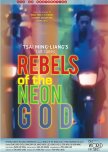
Rebels of the Neon God
4 oamenii au considerat această recenzie utilă
Această recenzie poate conține spoilere
Character driven with a melancholy atmosphere
Step back to a place in time with video arcades, skating rinks, phone booths, pagers, and no cell phones. Teens have been rebelling since the dawn of time and these teens were trapped in the cement jungle of Taipei with only the detached neon god spreading harsh artificial light over the packed, dreary streets. Welcome to the Rebels of the Neon God.The film follows the lives primarily of Hsiao and Ah Tze. Hsiao is a teenager failing at his college cram school and completely disinterested in studying. He lives with his parents in a small, but comfortable apartment. His mom is convinced that he is the reincarnation of the god Nezha, explaining the emotional distance between father and son. Tze is a petty crook who with his buddy, Ping, steals change from phone booths and vending machines to use at the arcade. Hsiao's father is a taxi driver whose side-view mirror is broken when Tze smashes it in an act of rebellious aggression, an act that will come back to haunt him in more than one way.
Tze lives with his brother in a filthy apartment with a backed-up kitchen drain that constantly floods the place. He sleeps on a cot above the moat, flicking cigarette butts into the swill. He begins a relationship with Kuei, his older brother's one night stand. She works in a skating rink and for the phone "dating" service but is as aimless as Tze and Ping. When Hsiao withdraws from the college prep class and pockets the money, fate brings him across the path of Tze. He stalks Tze with the adeptness of a serial killer, watching as he and Ping steal the motherboards from the arcade's games. Hsiao's father locks him out of the house for taking the refund money and disappearing. With nowhere else to go, Hsiao returns to the hotel to rent a room where Tze and Kuei are spending the night. Obscured by the falling rain he takes the opportunity to have a little revenge for the road rage incident by vandalizing Tze's motorbike and spray painting that Nezha was there next to it. For nearly the entire movie Hsiao is emotionless and speaks no more than 10 words, but when he sees Tze's frustration over his destroyed bike he literally dances with joy. When the mother board deal goes south, the petty crooks end up escaping in the cab with Hsiao's dad which triggers reactions in both Tze and the father with feelings of guilt for both men.
None of the youth had anything to look forward to and sought to find pleasure in the moment, whether it was games, smoking, sex, or impaling a cockroach on a desk. Hsiao was an isolated boy with anger seething below his benign face, unable to measure up to what his parents wanted from him. Whether he went home again or remained on the streets was never answered, although his father left the door cracked open for him. Hsiao's parents worshipped the old gods, he and the others answered to the cold god of the streets. Tze was always restless whether pulling small jobs, hanging out with his friends, or smoking like an inmate marking time in his apartment. Ping and Kuei were largely side characters, the loyal buddy and the girl Tze had sex with, but struggled to commit to. Despite their gritty exteriors, Tze and Ping weren't hardened criminals, they simply had nowhere to go and no better tomorrow to look forward to.
The area of Taipei where the movie was filmed came across as dirty and deteriorating though there were signs of new construction. Rain fell almost constantly, making the urban setting more claustrophobic. Aside from Tze's dilapidated apartment, two seedy hotels were used as sets, complete with porn on the small televisions. The streets, school room, and arcades were packed with people, people who were side by side but not communicating. Phone "dating" was shown several times, so even the normal act of meeting someone was difficult to do.
These young people were alienated from the general society, living somewhere on the edge without a safety net below them, desperately searching for belonging. Despite the oppressive atmosphere, there was a glimmer of hope. Each person who watches the film will likely come away with a different interpretation based on age and walk of life. I saw young people who felt trapped, rebelling against the suffocating box they'd been put into. They were all longing for love and acceptance and something that would help propel them to a brighter future but with no idea how to get there.
8/9/23
Considerați utilă această recenzie?
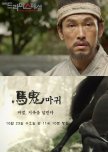
Drama Special Season 4: The Devil Rider
4 oamenii au considerat această recenzie utilă
Această recenzie poate conține spoilere
Don't forget to tip your rider!
The Devil Rider packed a big emotional punch into a short amount of time. Instead of single-mindedly focusing on the royal court and their politics, this drama special focused more on The Devil Rider and the people hurt and forgotten by an overly entitled elite.In 1637 Choi Munbok was assigned the task of delivering a message to a Joseon general during the conflict with the Qing dynasty. Serving his country meant leaving his wife who was in labor. He rode his horse through a harrowing hail of arrows during multiple ambushes, suffered an injury that would be lifelong, all to deliver a message that ended up being meaningless. Fourteen years later he became unwillingly embroiled in palace politics which put his daughter's life at risk. He would once again be asked to become The Devil Rider.
Yoo Oh Sung gave a wonderfully emotional performance as the imperfect Choi Munbok, portraying a broken man who often let his daughter down yet was also fiercely protective. He showed a man dragged down by guilt and a loyalty he could not forsake. All of the supporting cast were strong. Lee Chae Young gave an excellent performance as the daughter of the betrayed general looking for vengeance.
The Devil Rider could be frustrating and heartbreaking telling the story of people who were used and discarded by the imperial court. "Rags like us never had names to begin with." Still, Munbok was able to free himself from his past and grasp what was important to him with a lighter heart in the present which is all most people can hope to do even today.
8/8/23
Considerați utilă această recenzie?
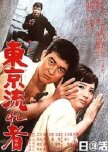
Această recenzie poate conține spoilere
"I'm a drifter, the man from Tokyo"
If you want a good example of a highly stylized film, Tokyo Drifter fits the bill. With its vibrant Crayon coloring, stagey architecture, and jazzy theme song sung and whistled by various characters throughout the film, it's more of a hypnotic experience than yakuza story.When Tetsu and his boss Kurata attempt to go straight, the Otsuka gang works to bring them down by ruining a real estate deal Kurata is orchestrating. Three murders later, Tetsu is forced to go on the run or drift until the heat is off. Otsuka's hitman "The Viper" is always close on his tail. Tetsu evades him across Japan with the help of "Shootin' Star," another drifter who warns him that Kurata may betray him. One character observes, "It's hard to handle a man like that once he gets good and mad." Director Suzuki rewarded the audience with Tetsu finally becoming the hurricane he was renowned for being. The film ends predictably in Tokyo for predictable reasons, but the trip there made the ride worthwhile.
Suzuki edited the film in such a way that there were times I wasn't sure what happened. He could make it challenging to keep up, especially in the snowy battles in northern Japan or during a dreamlike fight on a snowy train track. You never knew what to expect, there was even a bar room brawl, of course in a Western bar because no one brawls like Brits and Americans. Though the film supplied plenty of fist fights, gun fights, even sword fights, none of the fights were particularly convincing. The final scene was orchestrated like models doing a shoot, color coordinated with the set's architectural pieces. The gun fight more a dance than a struggle for survival.
Aside from the use of vibrant colors, the lighting could be surreal and contrary to the rules of nature. The sets may have been stylish but also appeared flimsy, especially when someone bumped into a wall causing it to shake. There were gorgeous travelogue shots of Japan as Tetsu drifted through them. But it always came back to the bright neon lights of the seedy side of Tokyo. The film felt quintessentially 1960's in manic mood and color.
While the film could bounce around-the betrayals, alliances, and creative storytelling never let the momentum slow down. Tokyo Drifter is a surreal yakuza experience, but one that is worthwhile if you like arthouse films or those films a little on the vividly strange side.
8/8/23
Considerați utilă această recenzie?

Tale of a Raindrop
4 oamenii au considerat această recenzie utilă
Această recenzie poate conține spoilere
Learning to let the music pour out of you
Tale of a Raindrop is a coming of age story about Michiru, a young woman who is on the cusp of graduating from college, and who must confront ghosts from the past and challenges from the present in order to let the music within her pour out.The movie opens with Michiru stating like a mantra:
"A lot has happened in the past few days. My best friend passed away. A man told me he loves me. I met my sister that I had never met before, and she is gone. And now I'm standing by a snowing beach. I came here to meet my father. I'm going to graduate college next month, and I will start working for a broadcast company. This is the story of my youth."
Chapter 1: Like Music Pouring Out from the World
Michiru was raised by a single mother, never knowing her father. One day she received a letter from an unknown younger sister. Sayuri had also been abandoned by him. She told of things their father liked, especially a book titled "Snowflake". It was a story of a snowflake who fell in love with a raindrop, but when it begat another raindrop the snowflake dissipated. At the theater where she worked a strange young man who loved silent movies mumbled nervously that he loved her. The mumbler took her to a concert in the park which entailed a friend who played the violin. Michiru watched in amazement as the mumbler and violinist danced to the music in their own joyful world.
Chapter 2: Like Music Pouring Out of Her
Michiru finally met up with her sister Sayuri, a high schooler who had turned to prostitution to earn money for herself and to support her older boyfriend's drug habit. The two sisters lived together, seemingly happy for a while, but Sayuri was bitterly disappointed to find that despite sharing an absentee father, Michiru wasn't miserable and hadn't been forced to live as harsh a life as she had. Before she left, Sayuri gave Michiru a letter from their father's old friend. Though Sayuri rejected her older sister, a special gift set her free to dance to her own music.
In anticipation that he would lead to her father, Michiru tracked down the old friend who turned out to be her age. Through him she discovered the lonely and sad life her father had lived. Afterward, as she walked along the snowy beach we returned to where the movie began with her stating her mantra over and over. The music grew louder as Michiru made peace with the past-the losses, the grief, guilt, anger, pain, and betrayals and found the music within. She realized who she was and that person was not reliant on who her father had been. As she began her new life, like the blooming cherry blossoms, she emerged from her dormancy, forgiving and refusing to carry the baggage of the past.
Chapter 3: Like Music Pouring Out from Me
"The world silently crawled inside me. I cannot stay here any longer…I will never stop dancing under the rainbow."
Tale of a Raindrop was an almost whimsical look at a young woman beginning new chapters of discovery in her life and coming to terms with losses along the way. Through her relationships, she learned how people were able to find the music in themselves in order to dance joyfully. There were times it fell into overly precious territory, almost pretentiousness, but then righted itself, as Michiru confronted the past and present. Rainbows cannot form without raindrops, and Michiru found her place in the world as a beautiful raindrop.
8/7/23
Considerați utilă această recenzie?

Duel to the Death
4 oamenii au considerat această recenzie utilă
Această recenzie poate conține spoilere
Shaolin vs Ninja!
Duel to the Death was short on plot but delivered with high flying action! Two men met to fight for personal and national honor and pride. More than that it had ninjas-exploding ninjas, invisible ninjas, even naked ninjas. Tony Ching Siu Tung pulled out all the stops for the fight choreography.Ching Wan leaves the Shaolin temple to participate in a fabled duel. Hashimoto, his opponent, is sent by the Shogun to defeat him in order to honor the country. Kenji, unknown to Hashimoto, is also ordered to go to China with numerous ninjas to "help" Hashimoto win and steal kung fu secrets from the temple. Song Lam, a cross-dressing swordswoman, crosses paths with both of them before revealing that she belongs to the school where the underground arena holds the fights. Surprisingly, both male leads were not fooled by her disguise! The ninjas also kidnap China's greatest fighters to take back to Japan to force them to disclose their kung fu secrets.
The plot and the acting were simple. Where this movie excelled was in the fight choreography and ninja action. The film was quite dark with numerous gruesome deaths and dismemberments. What made this one a winner for me were the ninjas, many of their scenes were hilarious, though I don't think they were intended to be. A giant ninja divided into five ninjas-even a naked one, they hid in the sand, concealed themselves on ceilings and in trees, disappeared, and literally exploded. My favorite scene had ninja kites! When Eddy Ko's character met his demise, I laughed hysterically. The sword action was fast and aided by serious kung fu and ninja flight. I don't think I've ever seen as much wire-fu and prolonged aerial action in an older martial arts movie, especially one that wasn’t a fantasy.
Norman Chu played a mostly respectable samurai who was taught to win at all costs. His was the strongest performance of the lot. Damian Lau as the more thoughtful Shaolin fighter, was sadly lacking in screen charisma. I almost didn't recognize Eddie Ko behind his thick black beard. Speaking of beards, the wigs and beards were among some of the worst I've ever seen---comically bad. The costumes and sets, on the other hand, were quite lovely. A couple of telephone poles and more modern roads weren't camouflaged very well though it did look like they tried with leaves and sand. Overall, the cinematography, scenery, and music were of a higher quality than what you would expect from this era and genre.
Duel to the Death raced along at a fast pace. Whenever there was a quiet moment, a ninja was sure to pop out of the sand or even thin air to liven the place up. For fans of old kung fu movies, this is definitely one to seek out. Whether you watch it in all earnestness or like me, as laugh therapy, you're sure to find at least parts of it entertaining. It's worth it for the ninja kites alone.
8/5/23
Considerați utilă această recenzie?

Project X-Traction
4 oamenii au considerat această recenzie utilă
Această recenzie poate conține spoilere
Lots of noise, little substance
Hidden Strike starring Jackie Chan and John Cena finished filming in 2018 and finally made it to Netflix five years later. The film felt like it could have been on-hold since 2000 with its over-reliance on CGI, gravity defying stunts, and sexist humor.Dragon Luo and his security team are called to Iraq to help evacuate Chinese workers from their refinery who have been attacked by mercenaries. They load up special buses to transport the workers and their families to the Green Zone. On one of the buses is Luo's estranged daughter Mei. Chris Van Horne who used to work in private security, now resides in a village in Iraq and helps out with the local orphans. His brother Henry talks him into attacking the convoy with the story that it contains the rebel criminals responsible for their father's death. It doesn't take long for Luo and Chris to meet up, compare notes, and join forces to stop the bad guys and save the hostages.
I watch a lot of martial arts and action movies, and can appreciate a check your brain at the door movie, but was disappointed in the fight choreography for this film. Jackie's character relied on kung fu as was to be expected for many of his fights while Cena appeared super human with his strength. At the age of 69 Chan still moved pretty well. Many of the fights, especially with Cena, came across as completely unbelievable due to wire work and CGI. Jackie had one silly fight in fire suppressant that was entertaining but went on for too long. Several of the fights using both weapons and fists and kicks seemed uninspired. If you approach it as a comedy or even a cartoon with a high body count, there were humorous moments. A couple of scenes with a jet engine and one involving a cliff almost strayed into Wiley Coyote territory.
The problem with some of the comedy was that it relied heavily on hand signal jokes and flat tire jokes. Oh, and women don't know how to drive humor. The hand signal schtick was confusing because Chris' dad died due to a miscommunication, which was supposed to be the source of his man pain. The producers must have felt an action and comedy movie wasn't enough, because they threw in an ill-conceived romance. They didn't have time to effectively build the buddy/bromance aspect of the film, but still tried to wedge a possible "romance" which fell flat largely due to crude comments by Chris. Even the relationship between the two brothers was insufficiently developed, which lowered the emotional stakes when tragedy hit. It might have been a mindless action film, but buddy and romance chemistry is even more important in such cases. And while Chris' love for the villagers was supposed to show what a great guy he was, it felt a little condescending. Somehow the Iraqis were only colorful extras in the background instead of having any involvement in the goings on in their own country.
If you are a Jackie Chan and/or John Cena fan, need a movie with lots of explosions, gun fire, quippy comments, CGI, and wire-work, this may be one you need to check out. If you're hoping for something more than a few entertaining moments, best to lower your expectations or see what else is on Netflix. This was a strike out for me.
7/28/23
Considerați utilă această recenzie?

 54
54 191
191 11
11






















